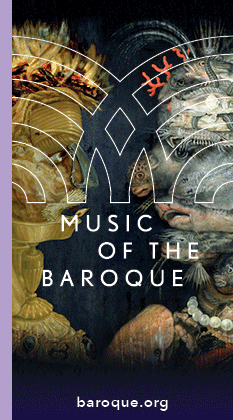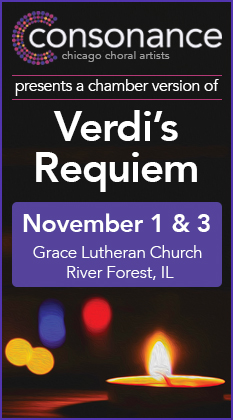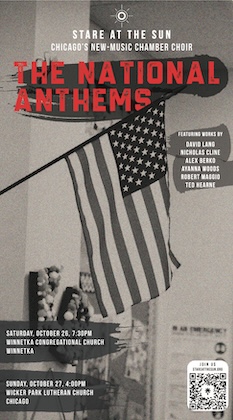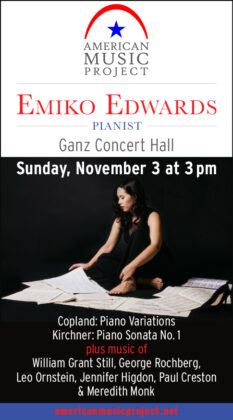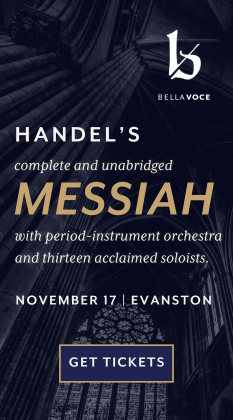Cage Festival opens with chiseled and luminous piano and choral works
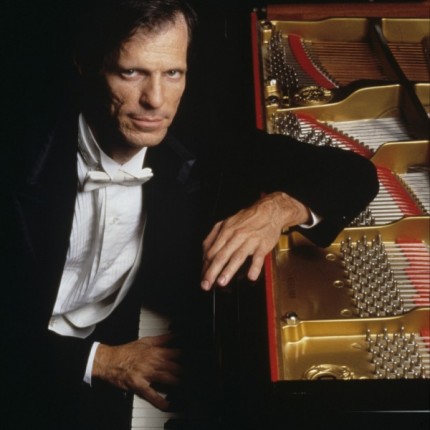
Maybe it’s an exaggeration to say that if composer John Cage hadn’t existed, somebody would have had to invent him.
Cage, whose birthday centennial we celebrate this year, was certainly his own invention. But it’s difficult to imagine the history of contemporary music without his boundless intellectual curiosity and relentless but good-tempered pushing of musical boundaries. In the 1940s and 1950s, twelve-tone composition held powerful sway on the American classical music scene. It’s no exaggeration to say that Cage, who died in 1992 at age 79, made it safe for young composers to break away from serialist orthodoxy and follow their own musical paths. With his light-hearted manner and rigorous yet radical compositional methods, he was a charismatic advocate for change.
Northwestern University’s Bienen School of Music honors Cage’s centennial this weekend with a wide-ranging John Cage Festival that includes concerts, a day-long symposium and an exhibit of the school’s extensive John Cage Collection at Northwestern’s Music Library. The opening concert Thursday night in Lutkin Hall on NU’s Evanston campus got things off to a bracing start.
The evening opened with a luminous performance of Hymns and Variations, an a cappella vocal work from 1979. Starting with two hymns by 18th-century American composer William Billings, Cage broke the settings into tiny fragments and began subtracting elements. What remained was an enthralling balance between silence and sound, shadowy melodies and hints of dissonant or tonal harmonies. At times single notes hung in the air like frozen raindrops, while others streaked by like comets. Nothing seemed gratuitously random, however, with the sound of a traditional 18th-century hymn always lurking beneath the pointillistic surface. Donald Nally, NU’s director of choral organizations, deftly conducted the 12 student singers from the Bienen Contemporary/Early Vocal Ensemble.
Stephen Drury, a noted teacher and contemporary music pianist, filled the rest of the meaty program. He opened with four Cage pieces—Prelude for Meditation, Music for Piano, “Solo” from Concert for Piano and Orchestra and In a Landscape. After intermission he performed Book III of Cage’s Etudes Australes, a dauntingly difficult 40-minute excerpt from a 4-book collection Cage composed in 1974-75.
Drury is a distinguished Cage pianist, and his performance of all five works had great clarity of line and beauty of tone. He seemed entirely at ease with the full range of Cage’s musical effects. In the Prelude for Meditation, the gentle, metallic sound of the prepared piano’s individual notes blossomed and faded like distant bells.
His expertly controlled contrast between silence and harsh, unexpected eruptions in Etudes Australes made for an urgent, engrossing performance. Made up of eight etudes, Book III requires the pianist to insert dampers on various keys, which creates greater resonance. At times the sound of limpid, individual notes seemed to surround us, at other times a crashing chord cut the air like a pin-point laser.
In the face of Cage’s free-wheeling openness, one would have liked a little more clarity and structure in the first half of Drury’s program. His short, introductory remarks before the first group of four pieces were very helpful and his quick, clear overview of some of the techniques Cage used in each work whetted our appetites for the sounds to come. But playing all the pieces without obvious pauses, made it difficult to savor each work’s individual profile. Still, the flow of music was gorgeously shaded and completely engaging.
Northwestern University’s John Cage Festival continues Friday and Saturday with day-long symposia. A free concert of works by Cage and other composers will be given at 5:15 tonight in the lobby of NU’s Deering Library, which can be entered from Sheridan Road. The festival closes at 7:30 p.m. Saturday with a concert by So Percussion in Pick-Staiger Concert Hall. pickstaiger.org
Posted in Performances
